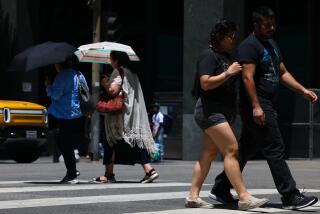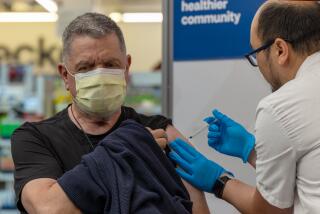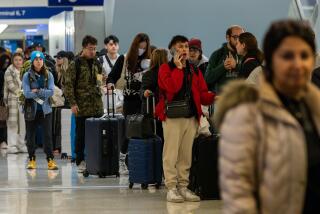In L.A.’s San Gabriel Valley, fear of the coronavirus has changed habits in ways big and small
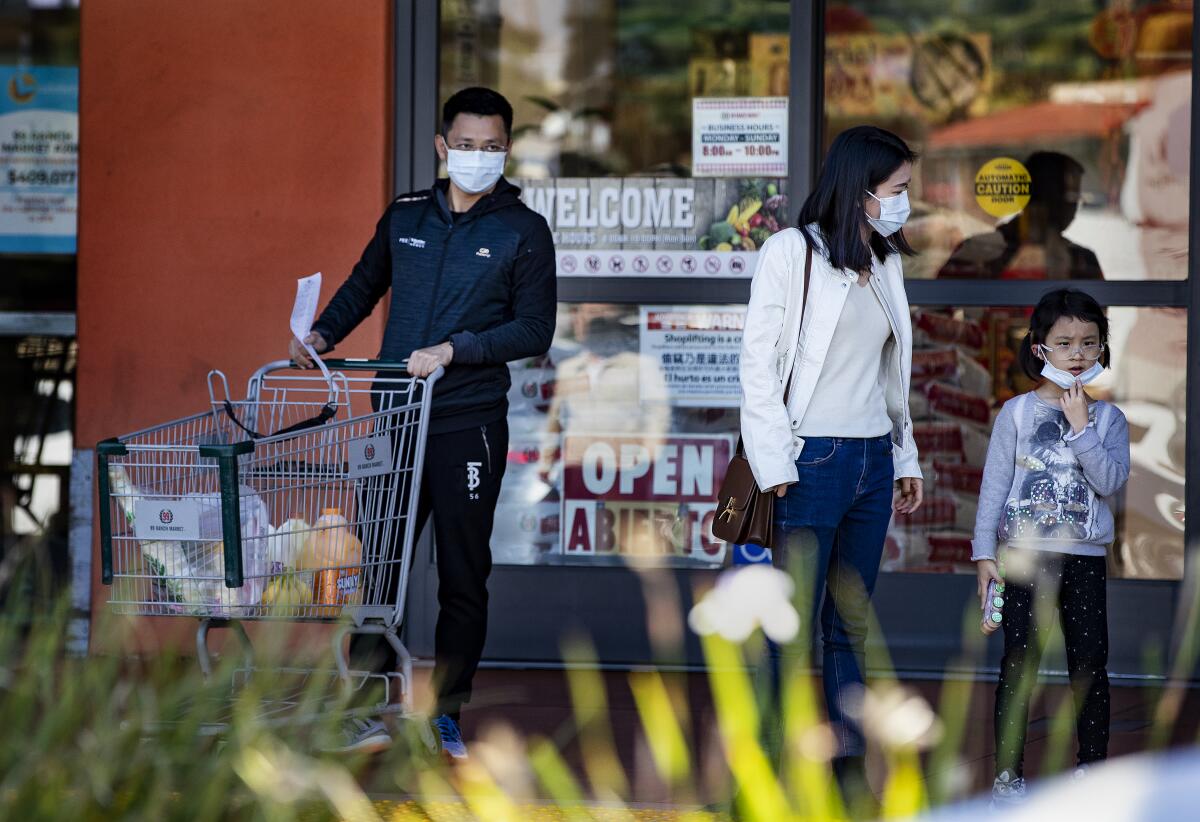
- Share via
It was the accessory of the moment for many of the people driving into the massive San Gabriel Square mega-mall.
Customers fidgeted with the filters of the masks covering their mouths as they streamed around the warren of Chinese restaurants, tea houses, jewelry stores and other shops. They wanted to make sure they were well protected from what Sarah Chong, 37, an accountant from Shanghai visiting friends, called “flying germs.”
Fear of the coronavirus was in the air.
In the San Gabriel Valley, the mecca of Asian culture in Los Angeles County, people have changed their habits in ways big and small to stave off infection: what they eat and buy; not to mention when and where and how they interact with others. In Alhambra, officials postponed the city’s Lunar New Year festival, scheduled for Saturday, after vendors shared concerns about low turnout.
Helen Truong, 57, said she is taking breaks from weekend gatherings with her Chinese Vietnamese family out of worry about the virus.
“I’ve been coming to the shops and dim sum for years. I know the times and days it’s most crowded and it’s hardest to find parking. Now I avoid going in major traffic,” said Truong, of Arcadia. “I prefer weekday mornings when there’s less people and less exposure.”
Protective masks are nothing new in neighborhoods where people already used them to reduce the risk of catching the flu or even to avoid smoke from wildfires. But the coronavirus has ratcheted up the precautions, partly as a result of the spread of another infection: hoaxes and false rumors about where the disease has been found. Many such reports popped up via Facebook posts, Snapchat messages and tweets.
Nearby, as he wrapped up lunch at Five Star Seafood Restaurant with his wife, Alhambra investor Leonard Chen, 48, checked his phone for the latest news.
“I have to be careful,” he declared. “Southern California is an international destination.”
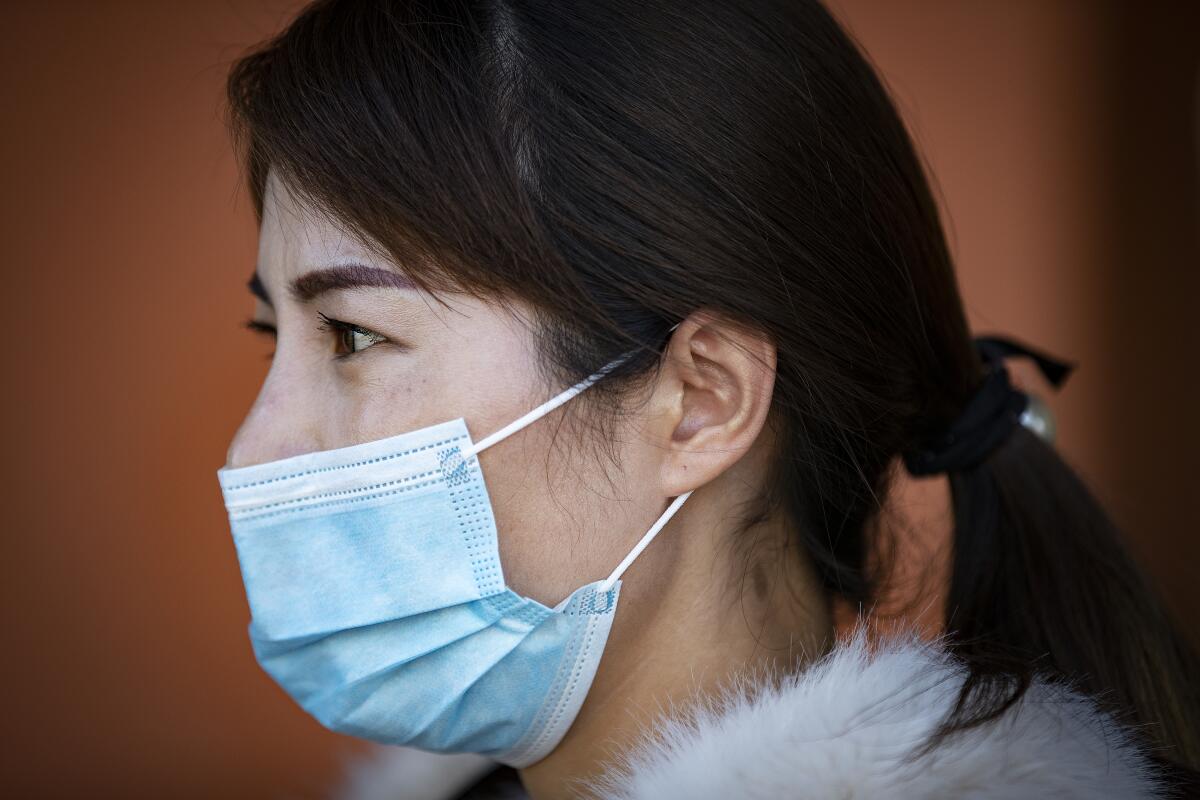
Emily Yuxue, a skincare technician from Monterey Park, said that instead of reusing masks for weeks, she stocked up, buying two boxes from a friend and a third, industrial-grade box from Home Depot. She runs errands early, staying inside when there are more shoppers out during the afternoon.
“What we can do to be safer, we try it,” Yuxue, 35, said.
To get updates, she keeps in touch with a younger sister living in Singapore, who has extended family from Wuhan, China — where doctors diagnosed the first cases of the disease.
There’s no need to go outside “unless it’s very necessary,” Yuxue said.
Some people say they are avoiding processed food with certain ingredients stamped “made in China.” Many believe the theory that the virus originated in a “wet” market where wild animals were sold.
“I think it sounds logical,” said Chen, the businessman. “I have seen dozens of stories about how this is being transmitted from animals to humans, and sure, that makes sense. I’m eating everything that is super well-cooked, no sushi, not anything raw. Burnt meat or well-done food is better.”
Chen said he and his parents are not taking any supplements bought from the herbal medicine shops. He has found some Facebook posts alarming.
“OK, maybe they’re rumors. Who really knows?” Chen said. “But this is a serious situation and I just don’t want to take chances.”
Foods that she would consider a rare delicacy are things that Truong will not put in her grocery cart.
“My kids are warning me: ‘Mom, people ages 55 and older may be at risk. Eat soup. When it’s cooked with super-high heat, it could be safer,’ ” she said. “We have a simpler diet for the time being.”
Harry Lee has decided to forego something else: vacations. Not just to Asia; anywhere, period. He has even avoided Lunar New Year celebrations and holiday banquets that might be packed with hundreds of people.
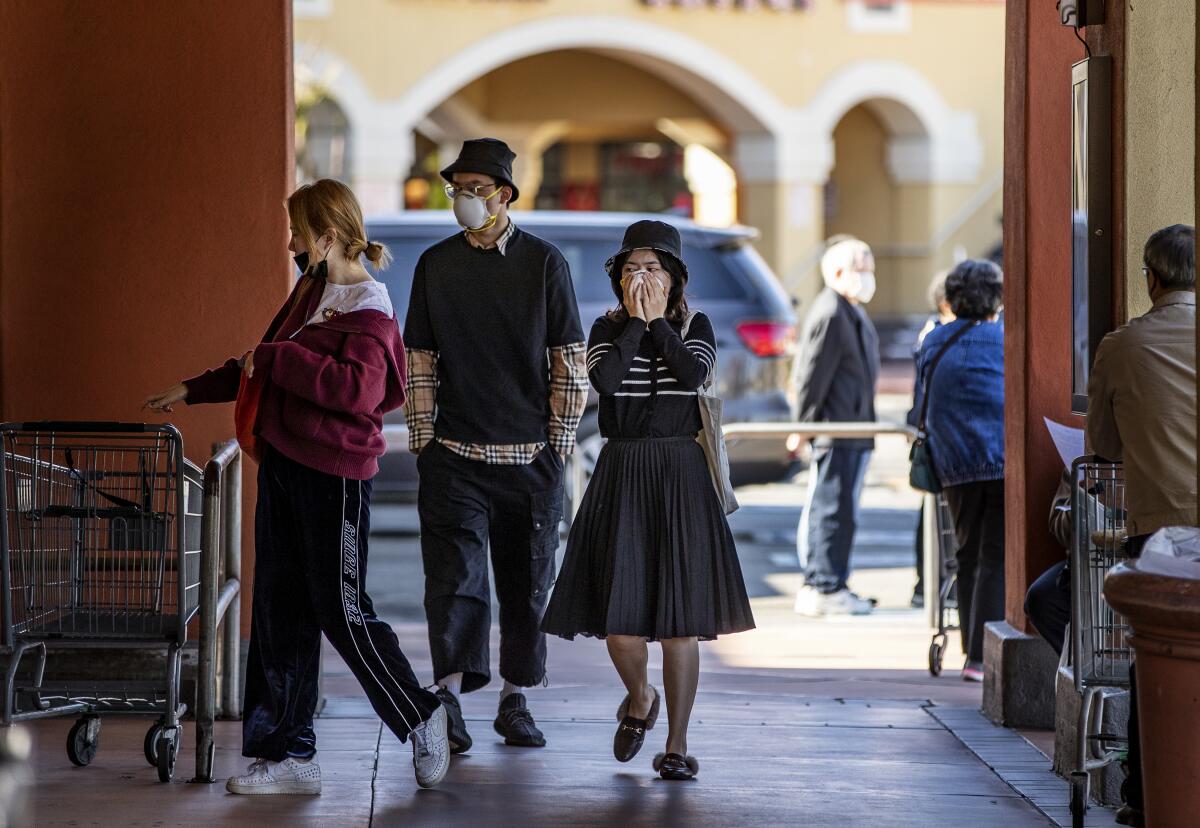
“I am not targeting any countries. It’s not fair to target any culture. I don’t want to be in an airport — basically I see it as a dangerous environment because you don’t know who’s coming and going,” said the 74-year-old grandfather from El Monte.
When he hears a person coughing or experiencing shortness of breath — which have been described as symptoms of the virus — he politely moves away.
“I ... try to be respectful, but when you’re in your 70s like me, you must be vigilant,” Lee said.
He stresses about something else: assumptions about Chinese people as carriers of the coronavirus. Lee said he was at a Costco recently with his son to pick up medicine when he noticed non-Asians leaving the line until the Asian customers had finished their purchases.
“I’m concerned about people associating illness only with a specific type of person and thinking all those people are not worthy,” Lee said.
Early Friday, the Centers for Disease Control and Prevention advised people not to panic about the coronavirus and warned against stereotyping people.
“Do not assume that if someone is of Asian descent, they have coronavirus,” said Dr. Nancy Messonier, director of the CDC’s National Center for Immunization and Respiratory Diseases.
Nolan Wang, a Chinese Korean high school senior heading to brunch at the popular square, said he viewed the widespread fear as “misleading.”
“A mask is a preventive measure, yes. But what makes more sense is a flu shot,” the 18-year-old said. “Honestly, I worry more about getting into college than getting the virus. We can guess all we want about what’s behind this virus, but we’re never going to know the whole truth.”
More to Read
Sign up for Essential California
The most important California stories and recommendations in your inbox every morning.
You may occasionally receive promotional content from the Los Angeles Times.

